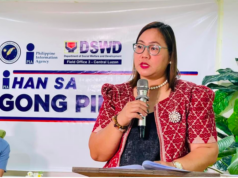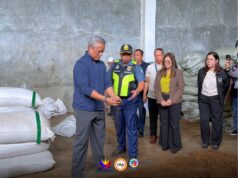While consent of the children’s parents were first obtained, they were not informed at all about the experimental nature of the vaccine, an official of the Department of Education (DepEd) here said on Tuesday.
Figures obtained from the Provincial Health Office (PHO) said the third and final doses of Dengvaxia were administered earlier this year to 32,210 pupils in the DepEd division of Pampanga, 6,855 pupils in the division of Angeles City, and 4,691 pupils in the division of San Fernando.
Figures from the division of Mabalacat City were not immediately available. Ponciana Lenon of the health and nutrition office of the DepEd division of Pampanga, said the written consent of the parents were first obtained before the immunizations were carried out initially in April, 2016.
She admitted, however, that while materials for the signature of parents indicated anti-dengue vaccines were to be administered and warned of possible side effects, they did not include information on the experimental nature of the vaccine.
This, even as parents of children studying at the Lakandula Elementary School in Mabalacat City expressed support for the plan of the Department of Justice to file criminal cases against former and current officials of the Department of Health (DOH) for the vaccines controversy.
“All our lives, we have worked hard for the welfare of our children, but some officials of the DOH, whom we initially trusted on the project, seem to have conspired to transform our children into guinea pigs,” said parent Daniel Cabrera whose daughter received two of the three doses of Dengvaxia at the school.
The last and final Dengvaxia vaccinations were administered in the first semester of this year.
The earlier two doses were administered during the term of former president Noynoy Aquino whose administration allocated P3.5 billion for the project. Cabrera said the DOH should shoulder all medical expenses of vaccinated children who would suffer from possible consequences of Dengvaxia.
“It is not enough that the government investigates and files charges.It should also be prepared to shoulder the medical costs of victims,” he said.
Vaccine manufacturer Sanofi has admitted that dengue could be “severe” among those who had never been ill of dengue and were later given Dengvaxia shots.
This admission has prompted the government to halt the program and call for a probe. The DOH said more than 733,000 children already received the first doses of the vaccines administered in April, 2016.
It would seem, however, that all three doses of Dengvaxia have already been given to many children.
The Philippines is the first country to have used government funds for mass Dengvaxia vaccinations.
This, despite other studies warning against the vaccine.
In September, 2016, experts from the Imperial College London, Johns Hopkins Bloomberg School of Public Health, and the University of Florida came out with a study published in the Science journal warning the vaccine should really only be used in places where there is a lot of dengue activity and where most children who receive it will have already had at least one bout of the disease.
“That’s because data from the studies used to approve the vaccine — called Dengvaxia, and produced by Sanofi Pasteur — showed a higher rate of hospitalizations for dengue three years after vaccination in young children who got the vaccine when compared to children who were unvaccinated,” the study said.




